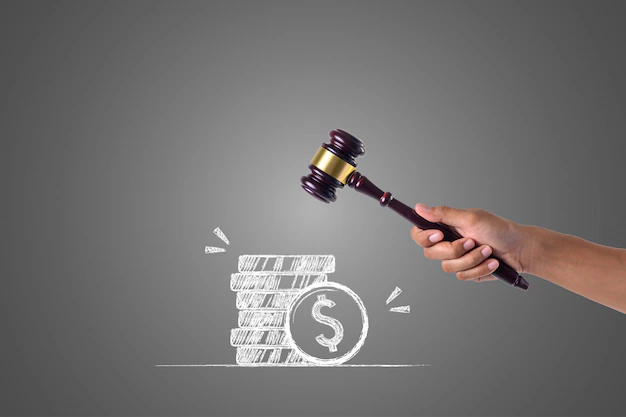Imagine a world where your voice, amplified through social media, has the power to drive legal reforms and champion consumer rights. This isn’t a futuristic scenario; it’s happening right now.
In this article, we’re diving deep into the significant role social media plays in shaping and influencing legal changes, particularly in the realm of consumer rights. From grassroots movements to viral hashtags, we will uncover how these platforms have become not just a medium for expression but powerful instruments for legal advocacy and change.
Social Media’s Rising Influence
The Power of Platforms
Social media platforms have transcended their primary function of connecting people. They are now pivotal in amplifying consumer voices and grievances. A single tweet, Instagram story, or Facebook post can ignite conversations, rallying thousands, if not millions, around a cause. This collective power has led to significant shifts in public opinion, often prompting companies and lawmakers to take action.
Case Studies
- Example 1: The #DeleteUber Campaign – A prime example of social media’s influence is the #DeleteUber campaign. In 2017, Uber faced massive backlash on social media, leading to an estimated 500,000 deleted accounts. This movement not only affected Uber’s bottom line but also led to significant policy changes within the company.
- Example 2: Starbucks Straw Ban – In 2018, Starbucks announced it would phase out plastic straws after a video of a turtle with a straw stuck in its nose went viral. The public outcry on social media platforms played a crucial role in this decision, showcasing how consumer activism can lead to environmental policy changes.
Legal Changes and Consumer Rights
The interplay between social media and legal reforms in consumer rights is more pronounced than ever. With the advent of the digital age, individuals have harnessed the power of online platforms to advocate for stronger consumer protections and greater corporate accountability. This section will explore how social media has influenced recent legal changes and strengthened consumer rights.
Influencing Legislation and Policy
Social media campaigns have directly impacted legislation and policy-making processes. By mobilizing public opinion, these platforms have brought consumer rights issues to the forefront, resulting in new laws and regulations. For example, movements against unfair contract terms or hidden fees in online transactions have led to more transparent business practices and enhanced consumer protections.
Strengthening Consumer Protection Laws
In response to social media activism, governments, and regulatory bodies have revised and introduced laws to protect consumers more effectively. This includes regulations on data privacy, online transactions, and consumer feedback mechanisms. These laws ensure that consumers have the right to be informed, the right to choose, and the right to be heard, significantly altering the relationship between consumers and corporations.
The Role of Consumer Advocacy Groups
Legal consultants play a crucial role in this landscape, providing resources and guidance to consumers seeking to understand and exercise their rights. For more in-depth information on how legal changes are impacting consumer rights, visit theconsumershield.

The Role of Public Sentiment and Awareness
In the digital age, public sentiment and awareness, especially as shaped by social media, are pivotal in driving legal changes in consumer rights.
Amplifying Voices and Shaping Opinions
Social media platforms have the unique ability to amplify individual voices and shape public opinion. Through sharing personal experiences, consumers can highlight issues that might otherwise go unnoticed. This collective voice has the power to influence policymakers and corporate leaders, leading to significant changes in laws and business practices.
The Power of Data and Privacy Concerns
As noted by the Pew Research Center, a majority of Americans express concerns over data usage by companies and the government, coupled with a lack of understanding of data privacy laws. These concerns, amplified through social media, have led to increased awareness and subsequent legal reforms focused on protecting personal data and privacy.
Educating and Empowering Consumers
Social media has become a tool for educating consumers about their rights. By spreading information on consumer rights and legal changes, these platforms empower individuals to make informed decisions and hold corporations accountable. This increased awareness often translates into pressure on businesses and governments to enact and enforce consumer-friendly policies.
Challenges and Criticisms
Misinformation and Bias: A significant issue with social media is the spread of misinformation. False information can sway public opinion and advocacy, sometimes resulting in demands for legal changes that may not be based on facts. Social media can also create echo chambers, where users see mainly opinions that mirror their own, leading to a biased view of consumer rights issues.
The Balance of Power: Social media emphasizes public opinion, which might overshadow expert analysis and a comprehensive understanding of consumer rights issues. There’s a risk that legal changes driven by social media could prioritize popularity over practicality, potentially leading to ineffective laws.
Accountability and Responsibility: The responsibility for moderating content and preventing misinformation falls on both social media platforms and users. It’s crucial for users to critically evaluate information and engage responsibly in advocacy.
Conclusion
Social media has been instrumental in how consumers advocate for their rights and influence legal changes. These platforms educate the public about their rights and have driven significant legal reforms.
Read Also:
- HOW VIRTUAL OFFICES PROVIDE LEGAL ASSURANCE FOR GLOBAL BUSINESSES
- LEVERAGING APPS FOR BUSINESS EXCELLENCE: A STRATEGIC APPROACH
- BENEFITS OF LEGAL TRANSLATION FOR BUSINESS
The post Social Media: A Catalyst For Legal Change In Consumer Rights appeared first on Social Media Magazine.

